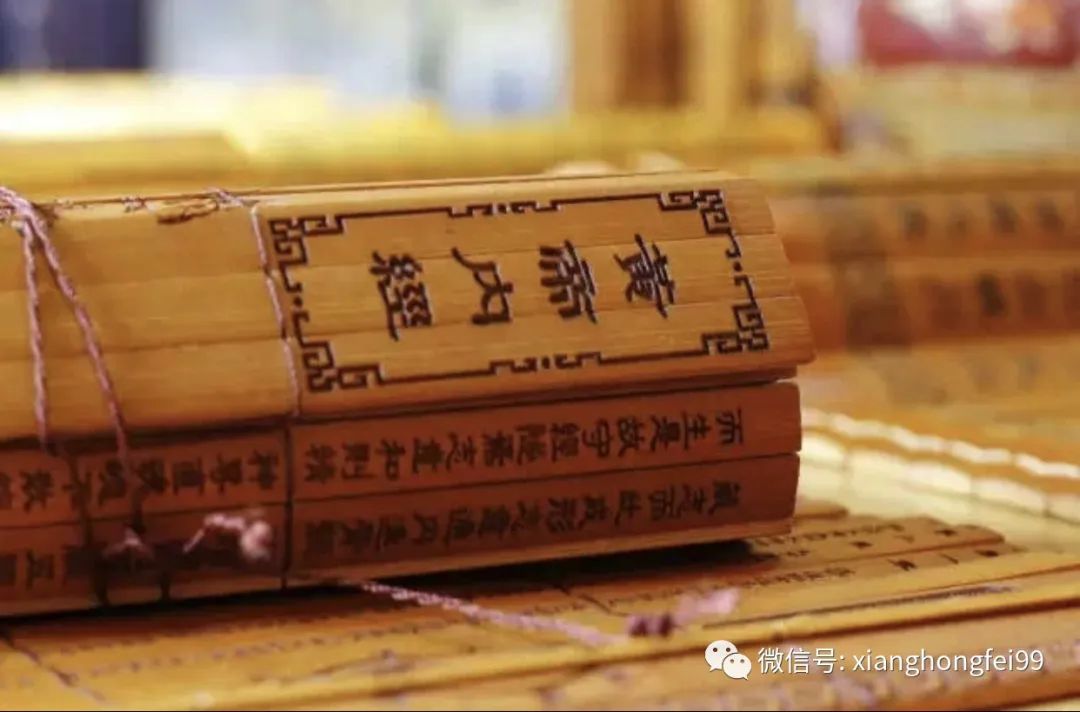
The Huangdi Neijing (Yellow Emperor’s Inner Canon) can be summarized with three “firsts”: it is the first classic of TCM theory; the first manual on health preservation; and the first encyclopedia of life.
For any issues related to tendons, treating the Gan (Liver) is correct.
For any issues related to bones, treating the Shen (Kidney) is correct.
For any issues related to muscles, treating the Pi Wei (Spleen and Stomach) is correct.
For any issues related to blood vessels, treating the Xin (Heart) is correct.
For any issues related to skin and hair, treating the Fei (Lung) is correct.
1. The Five Organs
- Heart
The heart is the residence of the spirit, the master of blood, and the root of the pulse.
It belongs to the fire element in the Five Elements; its physiological functions include:
① Mastering blood vessels;
② Governing consciousness; the heart opens to the tongue, connects with the pulse, its manifestation is on the face, associated with joy in emotions, and sweat in fluids. The heart is interrelated with the Xiao Chang (Small Intestine).
- Lung
The lung is the place of the corporeal soul and the master of qi.
It belongs to the metal element; its physiological functions include:
① Mastering qi and controlling respiration;
② Governing diffusion and descending;
③ Regulating the water pathways;
④ Governing the hundred vessels and treating stagnation; assisting the heart in regulating the circulation of qi and blood; the lung connects to the throat, manifests on the skin, its expression is in hair, opens to the nose, associated with worry in emotions, and mucus in fluids, the lung is interrelated with the Da Chang (Large Intestine).
- Spleen
The spleen is the source of qi and blood transformation, the foundation of postnatal life, and stores intention.
It belongs to the earth element; its physiological functions include:
① Mastering transportation and transformation;
② Governing the ascent of clear qi;
③ Governing blood containment; it opens to the mouth, connects with flesh, governs the limbs, its manifestation is in the lips, associated with thought in emotions, and saliva in fluids; the spleen is interrelated with the stomach.
- Liver
The liver is the place of the ethereal soul, the storehouse of blood, and the root of tendons.
It belongs to the wood element, governing upward movement.
Physiological functions include:
① Mastering the smooth flow of qi;
② Storing blood; it opens to the eyes, connects with tendons, its manifestation is in nails, associated with anger in emotions, and tears in fluids, the liver is interrelated with the Dan (Gallbladder).
- Kidney
The kidney is the root of congenital essence, stores will, and the waist is the organ of the kidney.
It belongs to the water element; its physiological functions include:
① Storing essence, governing growth, development, and reproduction;
② Governing water;
③ Governing the intake of qi; it is associated with bones, governs bone marrow, its manifestation is in hair, opens to the ears and the two yin (anus and perineum), associated with fear in emotions, and saliva in fluids, the kidney is interrelated with the Pang Guang (Bladder).
2. The Six Bowels
- Gallbladder
Physiological function: stores and excretes bile, the gallbladder governs decision-making.
- Stomach
Physiological function: receives and digests food, the stomach descends to harmonize.
- Small Intestine
Physiological function: governs the reception and transformation of substances, separating the clear from the turbid, “the small intestine governs fluids”.
- Large Intestine
Physiological function: transmits and transforms waste, the large intestine governs fluids.
- Bladder
Physiological function: stores and excretes urine, relying on the kidney’s qi transformation.
- San Jiao
Physiological function: facilitates the flow of original qi, governs the qi mechanism and transformation, serving as the pathway for water and fluids.
3. The Twelve Meridians
In a day, there are twelve time periods, each corresponding to a meridian, connecting end to end, like a loop without end. Mastering your body means mastering the secrets of longevity and health!
- Zi Hour
23:00–1:00 Gallbladder Meridian: Deep sleep! The gallbladder needs metabolism; if a person sleeps during this time, the gallbladder can complete its metabolism. At this time, the heart’s function is weakest; if there are heart patients, prepare the Jiao Xin Wan (Rescue Heart Pill).
- Chou Hour
1:00–3:00 Liver Meridian: Deep sleep! This is the best time for liver repair; waste blood needs to be eliminated, and fresh blood needs to be produced, completed during this time. One must enter deep sleep to provide the liver with sufficient energy. If not asleep, the liver continues to output energy to support thinking and actions, failing to complete metabolism, leading to liver disease.
- Yin Hour
3:00–5:00 Corresponding Meridian: Lung Meridian: The transformation of yin and yang begins at this moment, transitioning from yin to yang. The human body also enters a time of yang flourishing and yin declining. At this moment, the lung meridian is most active. The liver provides blood to the lungs, which then distributes it throughout the body. At this time, the body requires a large amount of oxygen. Patients with lung diseases or asthma should take medication during this time for better effects than during the day.
- Mao Hour
5:00–7:00 Large Intestine Meridian: Bowel movement! Drink a cup of warm water before defecation. At this moment, the large intestine meridian is vigorous, absorbing moisture and nutrients from food, expelling waste.
- Chen Hour
7:00–9:00 Stomach Meridian: Don’t forget breakfast! At this time, gastric acid is continuously secreted; if one goes hungry for too long, there is a risk of gastric ulcers, gastritis, duodenitis, and cholecystitis!
- Si Hour
9:00–11:00 Spleen Meridian: Drink water! (Drink more water at this time) The spleen is the overall coordinator of digestion, absorption, and excretion. The spleen is the foundation of postnatal life. To nourish the spleen: Yi Yi Ren (Job’s Tears), Hong Dou (Red Beans), and Shan Yao (Chinese Yam) porridge. Throughout the day, drink about 2000ml of water, approximately five bottles of mineral water, and keep drinking; do not drink any beverages.
- Wu Hour
11:00–13:00 Heart Meridian: Take a short rest. The heart drives blood circulation, nourishing the spirit, qi, and tendons. A short nap is very beneficial for heart health, allowing for energy replenishment in the afternoon and evening. *Napping should not exceed 30 minutes, as it may disrupt sleep and lead to insomnia at night.
- Wei Hour
13:00–15:00 Small Intestine Meridian: The small intestine meridian adjusts the nutrition of the body throughout the day. If there is heat in the small intestine, the body will experience belching and gas. Therefore, lunch should be eaten before 1:00 PM to ensure that nutrients are absorbed into the body.
- Shen Hour
15:00–17:00 Bladder Meridian: Urination! The bladder expels fluids from the body. If there is heat in the bladder, it can cause bladder cough, which is coughing and involuntary urination. The bladder is most active, suitable for drinking more water. At this time, do not hold urine, as it can lead to “urinary retention”.
- You Hour
17:00–19:00 Kidney Meridian: The kidneys are the essence of reproduction and the essence of the five organs and six bowels. The kidney is the root of congenital essence. After the Shen hour, the body has expelled fire and toxins, and the kidneys enter the time of storing essence. This is a time for men. For those with kidney function issues, massaging the kidney meridian at this time is most effective.
- Xu Hour
19:00–21:00 Pericardium Meridian: At this moment, conditions for peaceful sleep are created. A calm mindset.
- Hai Hour
21:00–23:00 San Jiao Meridian: Time to sleep! This is when the body’s largest organ, the San Jiao, operates, governing all qi and facilitating the flow of water and fluids. During the Hai hour, the San Jiao connects with the hundred vessels. It is a time for rest and recuperation.

Hundreds of thousands are attending health preservation classes that are straightforward and comforting, integrating knowledge and practice, with over 100 practical case studies interpreting the original texts. Understandable and applicable classics of Chinese medicine, ensuring the health and safety of the whole family, addressing root causes, helping detoxify, eliminate dampness, calm the mind, nourish the brain, and improve constitution.
http://xima.tv/1_G8CWS1?_sonic=0
If you agree with the views in this article, please give us a “like” and “see more” at the end of the article. Thank you!

